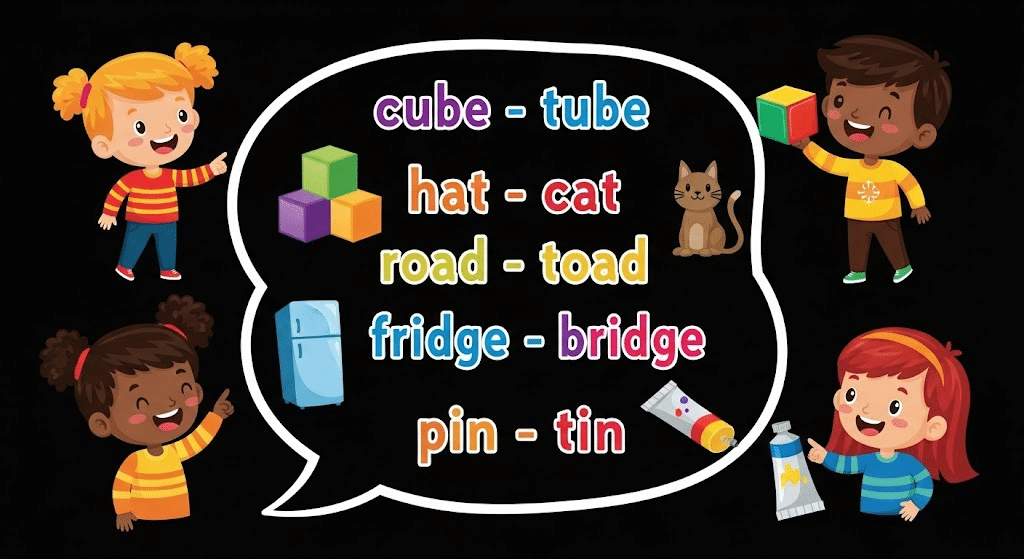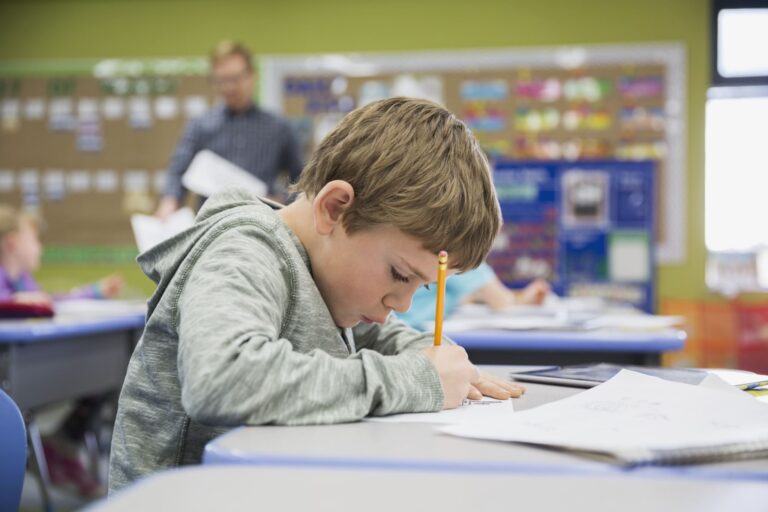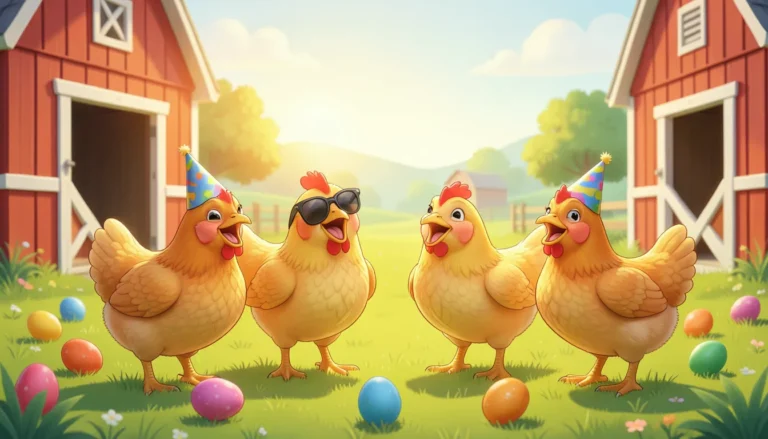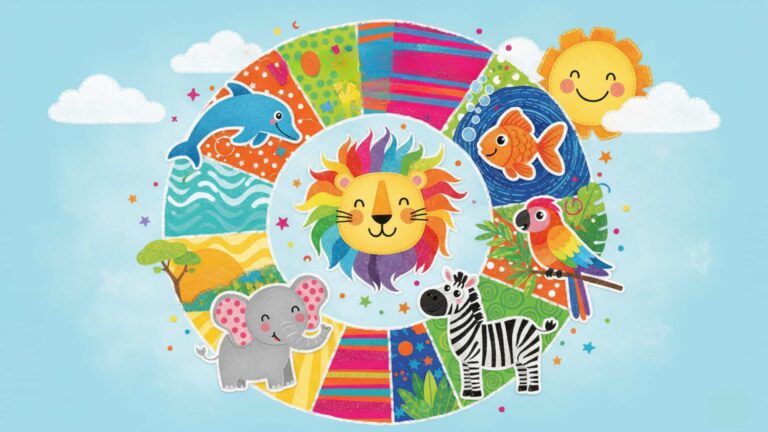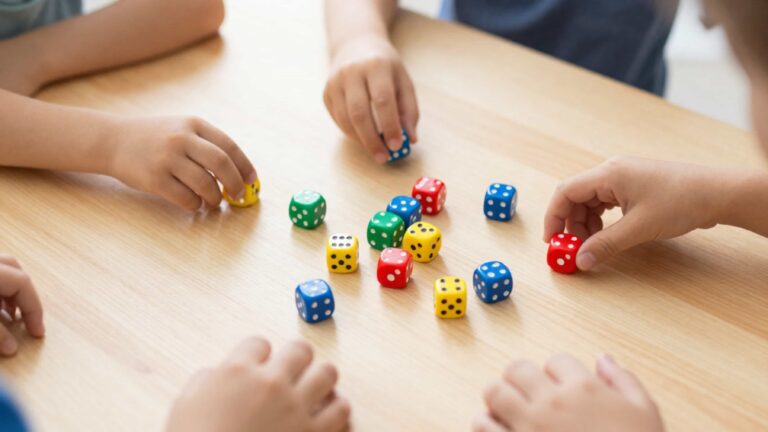Kindergarten teachers and parents often worry when children struggle with reading readiness.
Yet many don’t realize that simple rhyming games for kindergarten can be the key to building strong language foundations.
These playful activities boost phonological awareness, helping young learners recognize sound patterns that make reading easier later on. When children master rhyming, they develop crucial pre-reading skills through fun and engaging play.
This blog provides creative rhyming activities that change language learning into joyful experiences, giving educators practical tools to support every child’s literacy development.
The Power of Rhyming Games in Early Childhood Education
Rhyming games for kindergarten offer kindergarten children a fun way to build important learning skills. These simple activities work like magic to help young learners grow in many areas.
- Reading Foundation: Children learn to hear sound patterns, which helps them become better readers later
- Memory Building: Kids connect similar sounds and words, making it easier to remember new vocabulary
- Listening Skills: Students focus on specific sounds within words, improving their attention to detail
- Speech Development: Regular practice with rhymes helps children speak more clearly and confidently
- Pattern Recognition: These skills support math learning by teaching kids to spot repeated sequences
- Emotional Growth: Success with rhyming builds confidence and makes learning feel enjoyable
Engaging Rhyming Activities to Try in Your Kindergarten Classroom
Ready-to-use activities make incorporating rhyming practice into daily lessons simple and effective.
These seven rhyming games for kindergarten require minimal setup while delivering maximum learning impact for young students.
1. Build a Rhyme
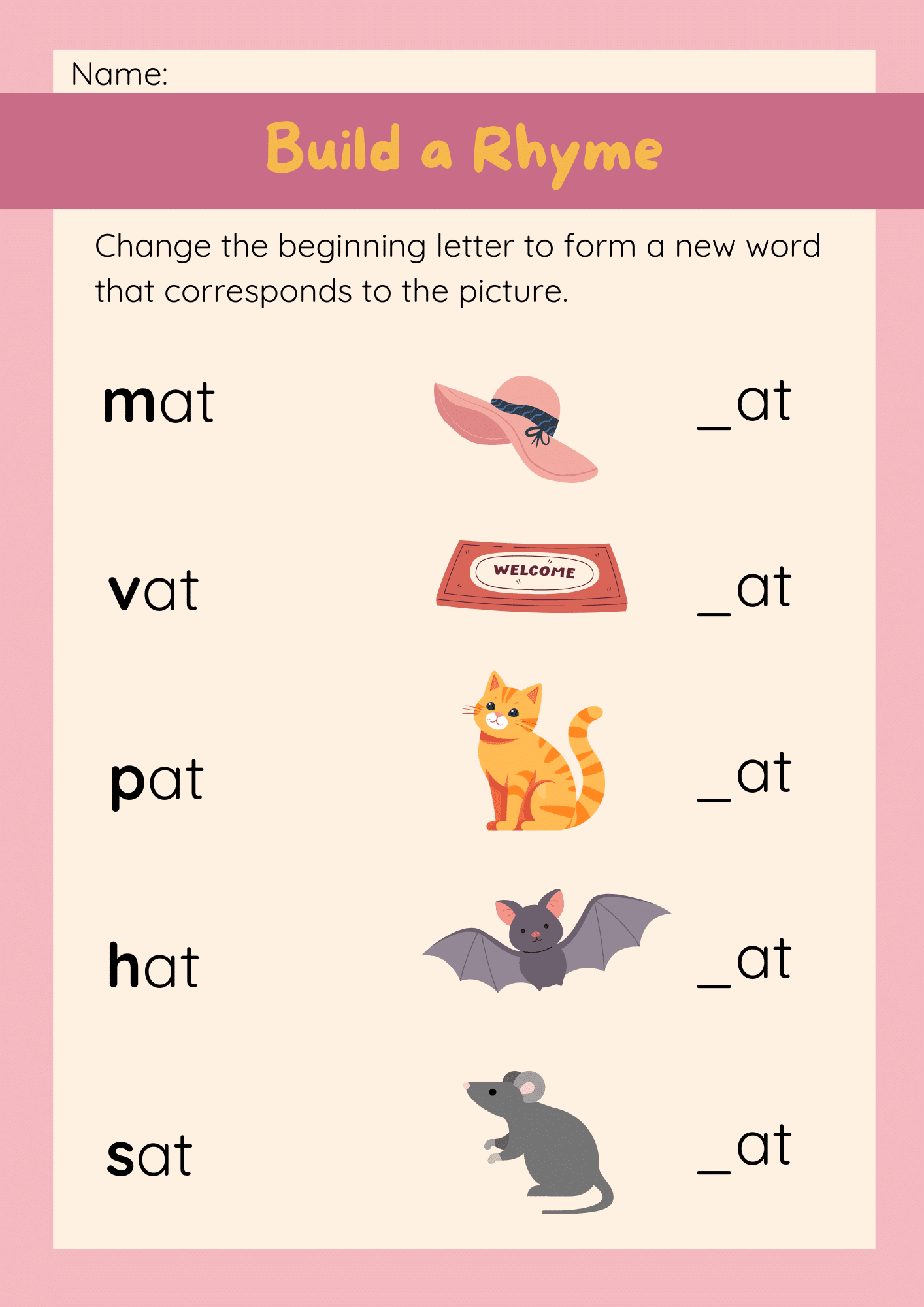
Teachers provide letter tiles or cards for students to create rhyming word families.
Children start with a simple word like “cat” and build similar-sounding words such as “bat,” “hat,” and “mat.” This hands-on approach helps kids understand letter-sound connections while having fun.
The activity works well for both individual and small group learning.
2. Circle Rhyming Words
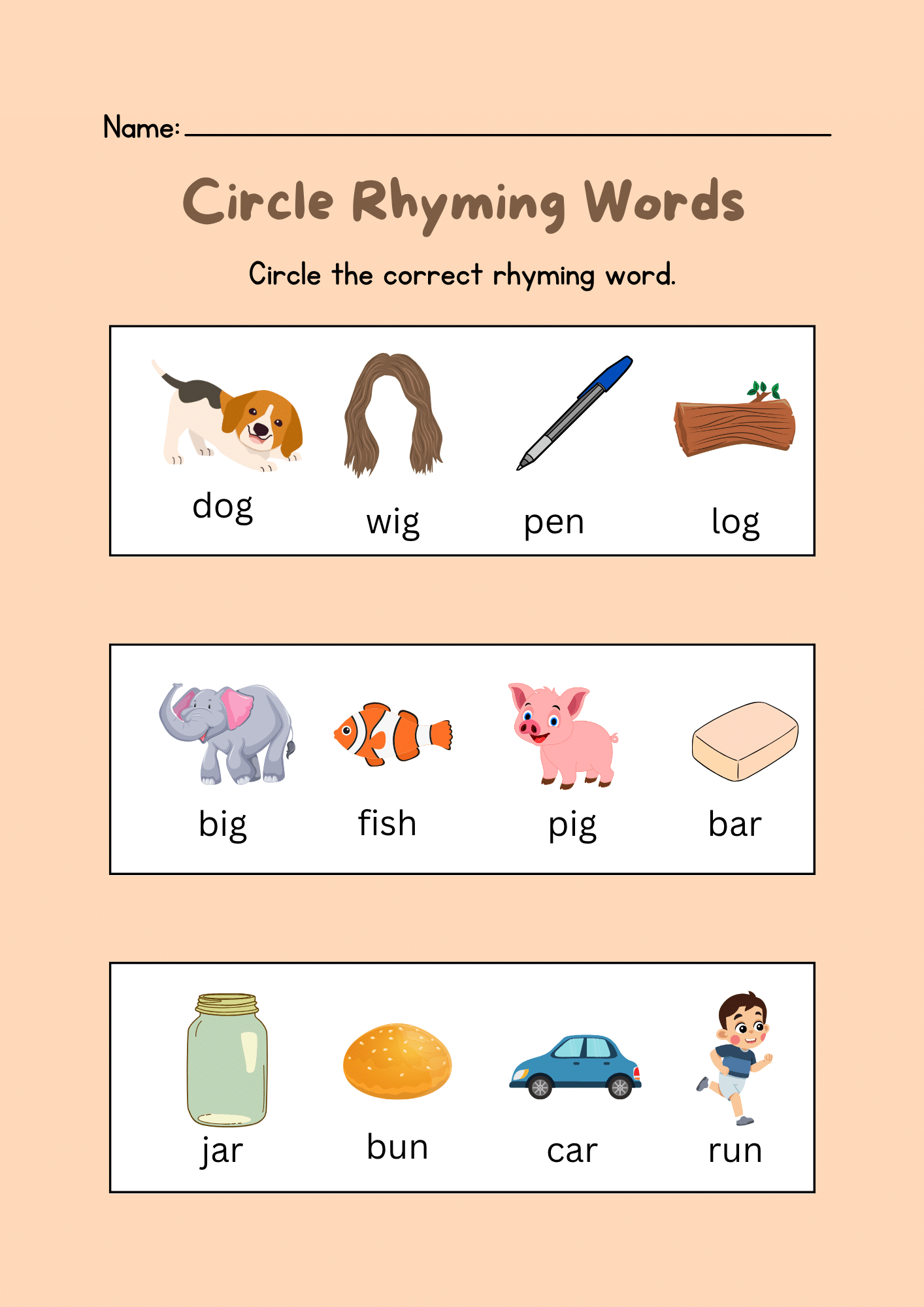
Students receive worksheets containing multiple words and circle those that rhyme with a target word. This activity develops visual recognition skills and helps children identify rhyming patterns quickly.
Teachers can adjust difficulty by changing word complexity or adding pictures for visual support.
Download Circle Rhyming Worksheet Here
3. Rhyming Word Search
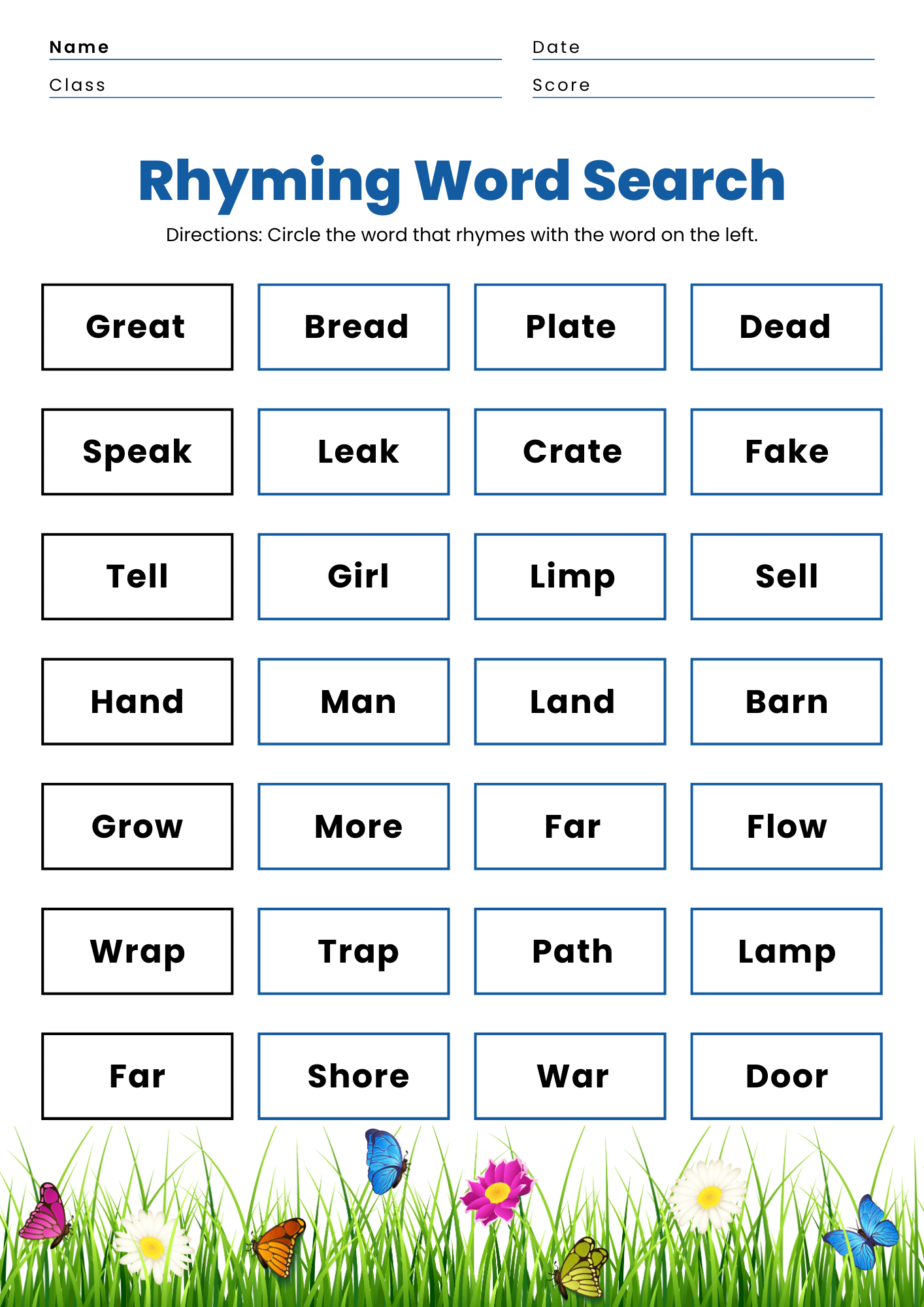
Children hunt for rhyming word pairs hidden in a grid format. This printable activity challenges students to find matching sounds while improving their scanning and recognition abilities.
The game combines puzzle-solving with phonological awareness practice.
Download Rhyming Word Search Here
4. Rhyming Match
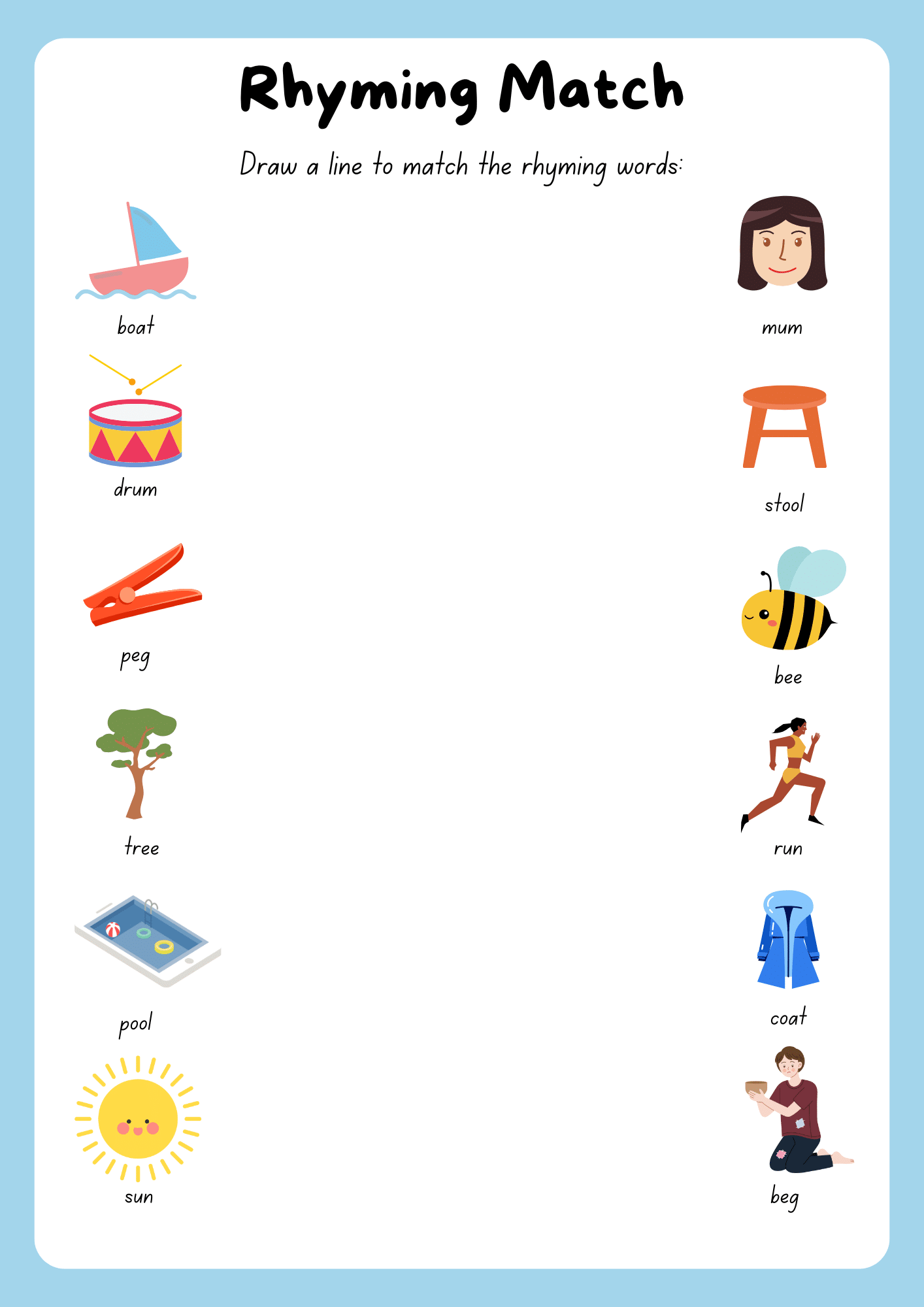
Students pair rhyming words, which improves word association skills and memory.
Children can play independently or with partners, making it perfect for learning centers. The matching process reinforces sound patterns through repetitive practice.
5. Rhymes Read Aloud
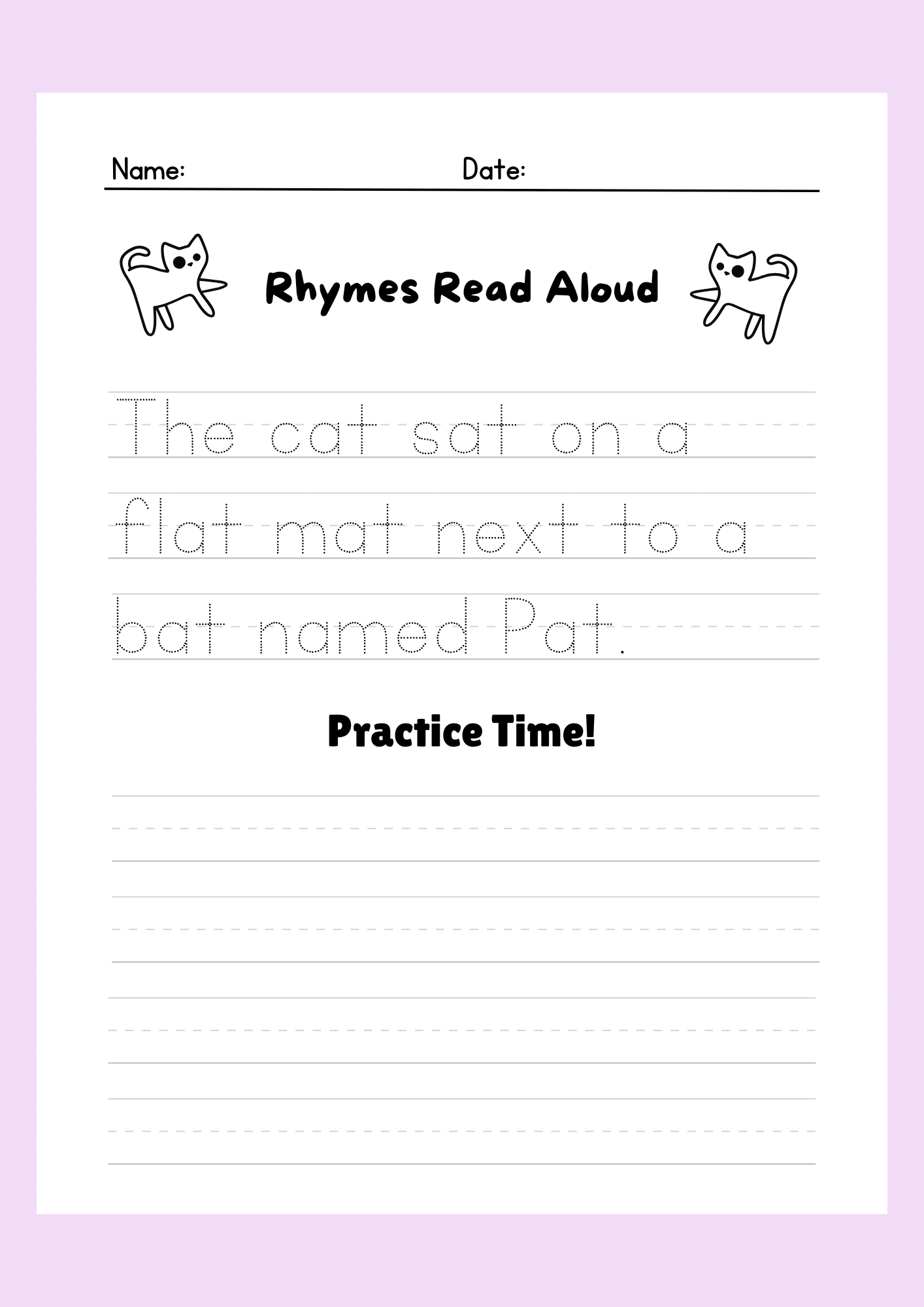
Teachers organize interactive group sessions where children take turns reading and writing rhyming texts. This activity builds reading fluency while allowing students to hear rhyming patterns spoken clearly.
The social aspect encourages participation and builds confidence in verbal expression.
Download Read Aloud Rhyme Collections Here
6. Rhyming Bingo
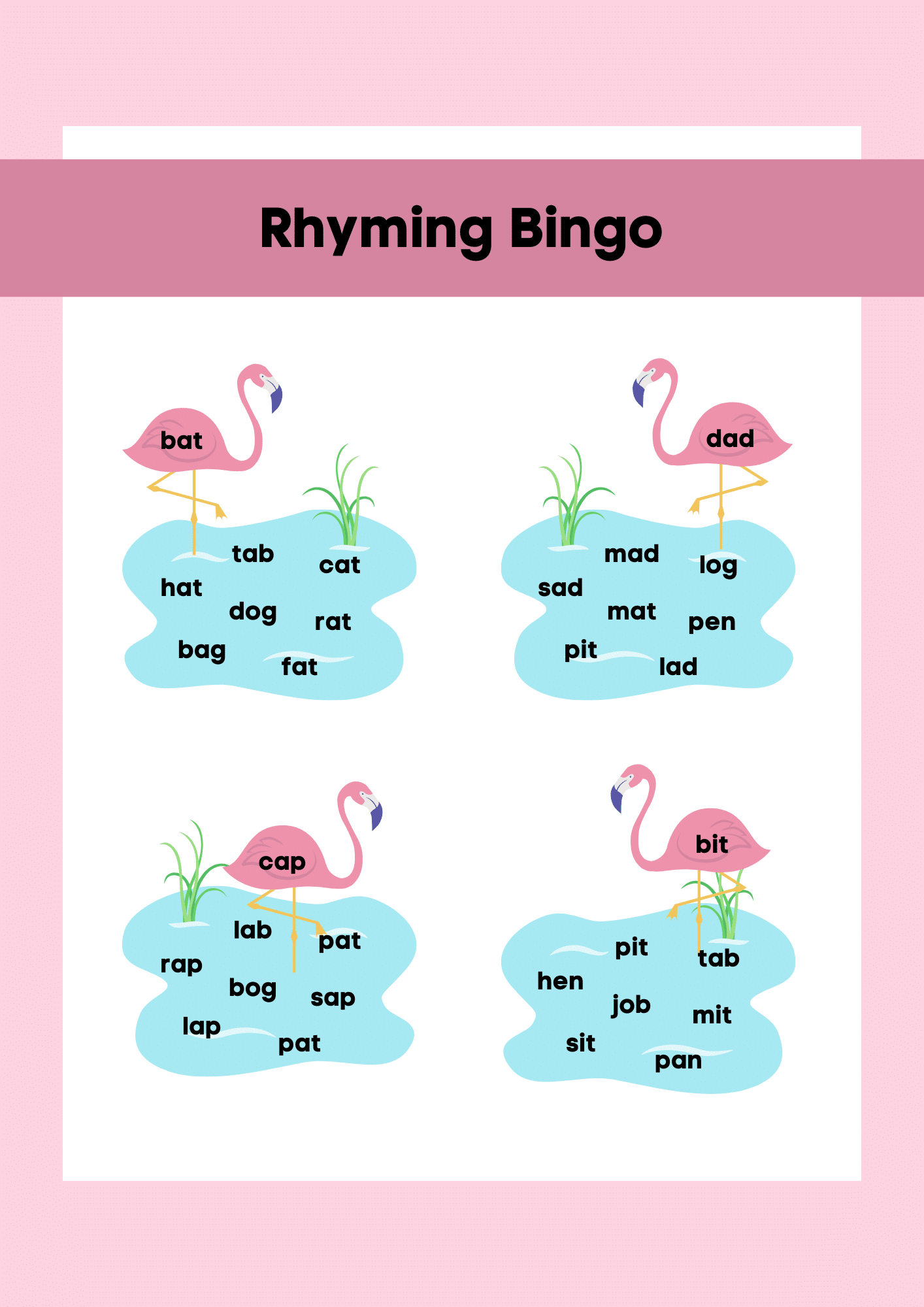
Students use bingo cards featuring rhyming words instead of numbers for an exciting classroom game.
Teachers call out words, and children mark matching rhymes on their cards. This activity combines listening skills with pattern recognition in a competitive, fun format.
Download Rhyming Bingo Cards Here
7. Rhyming Picture Hunt
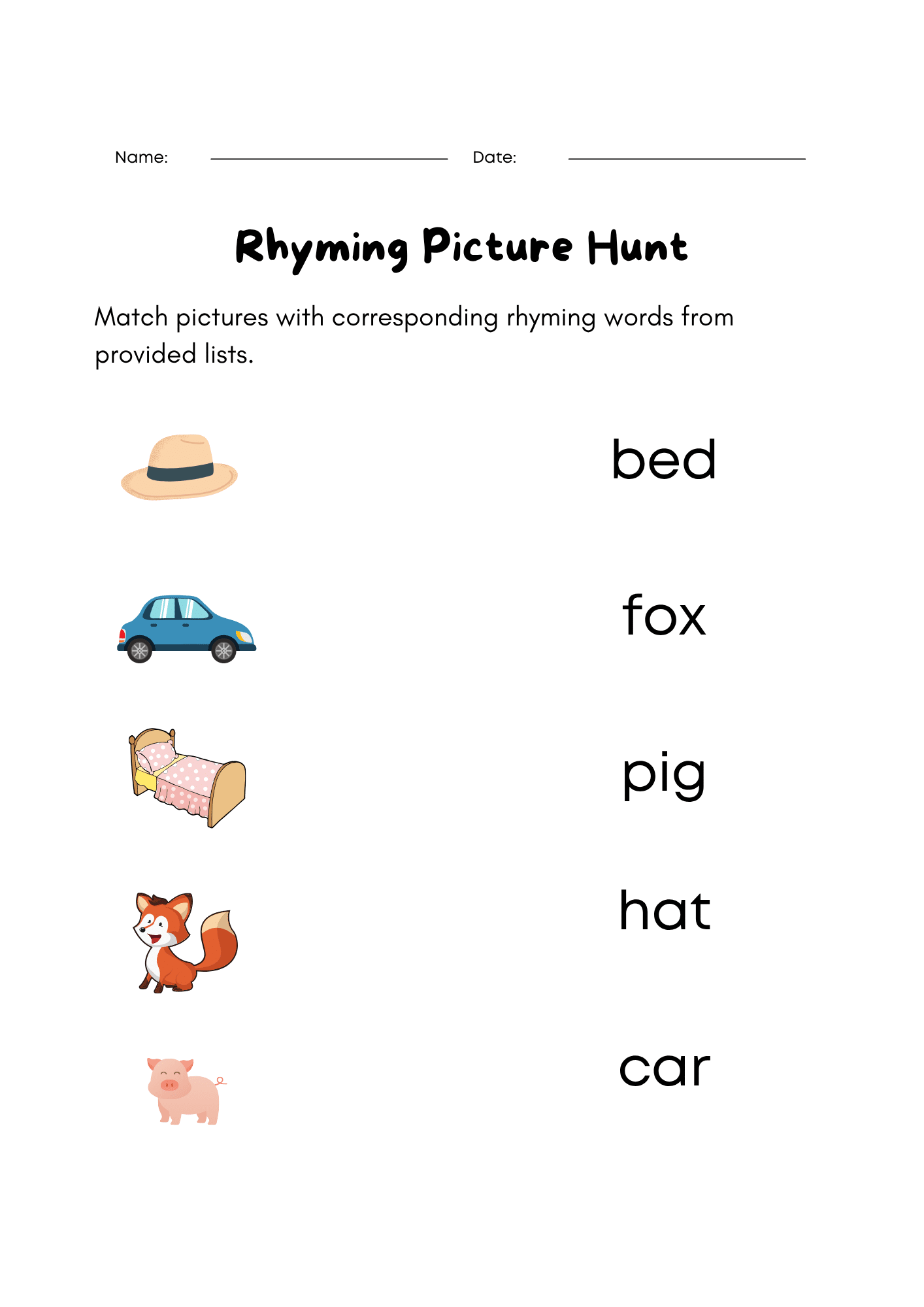
Children match pictures with corresponding rhyming words from provided lists. This activity strengthens both visual and auditory connections, helping students link sounds with images.
The multi-sensory approach supports different learning styles and reinforces vocabulary development.
Download Rhyming Picture Hunt Activities Here
Key Takeaways
Teachers and parents now have practical tools to support young learners’ language development through play.
The seven rhyming games for kindergarten presented here build essential skills that directly impact reading success.
Children who regularly practice these activities develop stronger listening abilities, expanded vocabularies, and better phonemic awareness. Start implementing these rhyming activities today.
Choose one or two games that suit your setting and watch as children’s language skills flourish through enjoyable play. Their future reading success begins with these simple yet powerful rhyming experiences.

